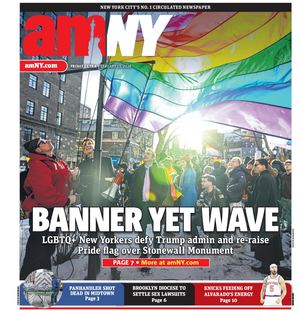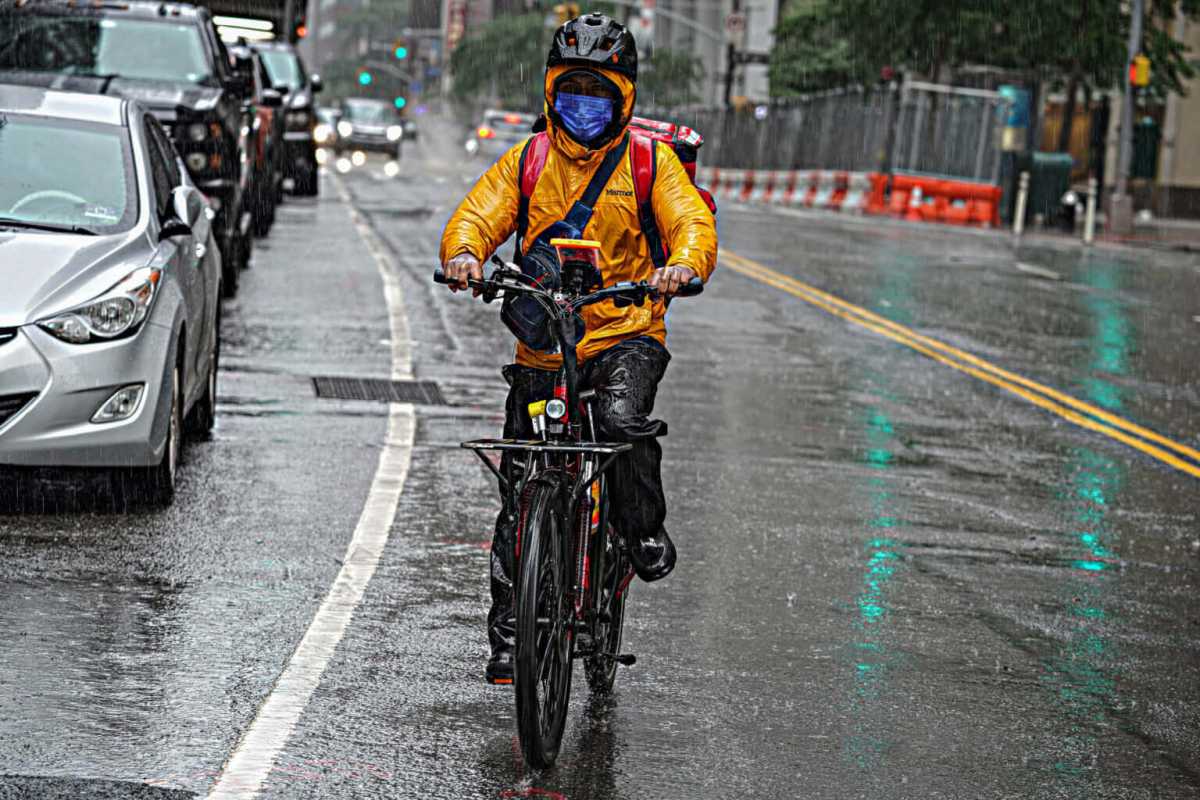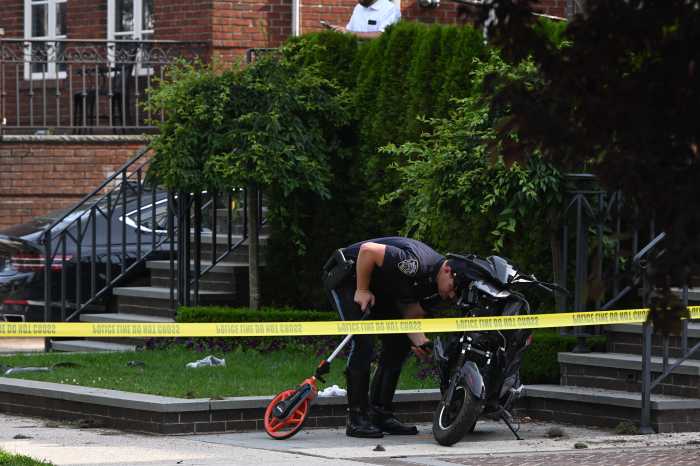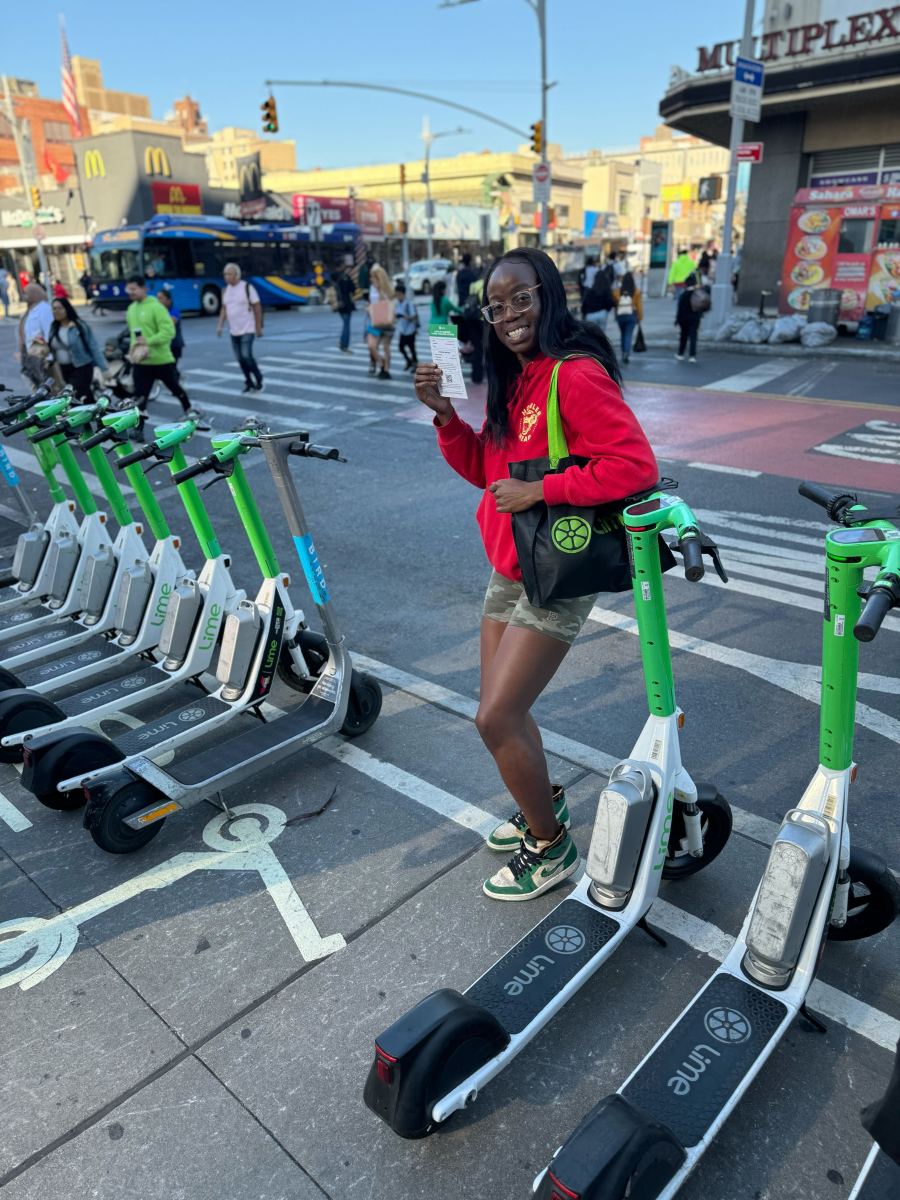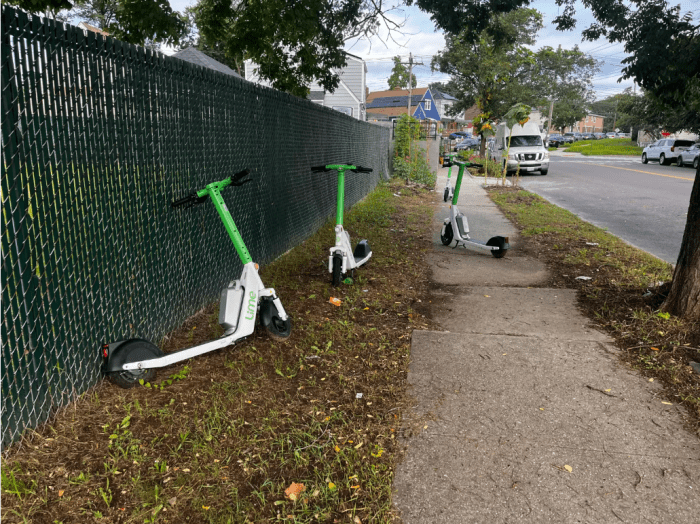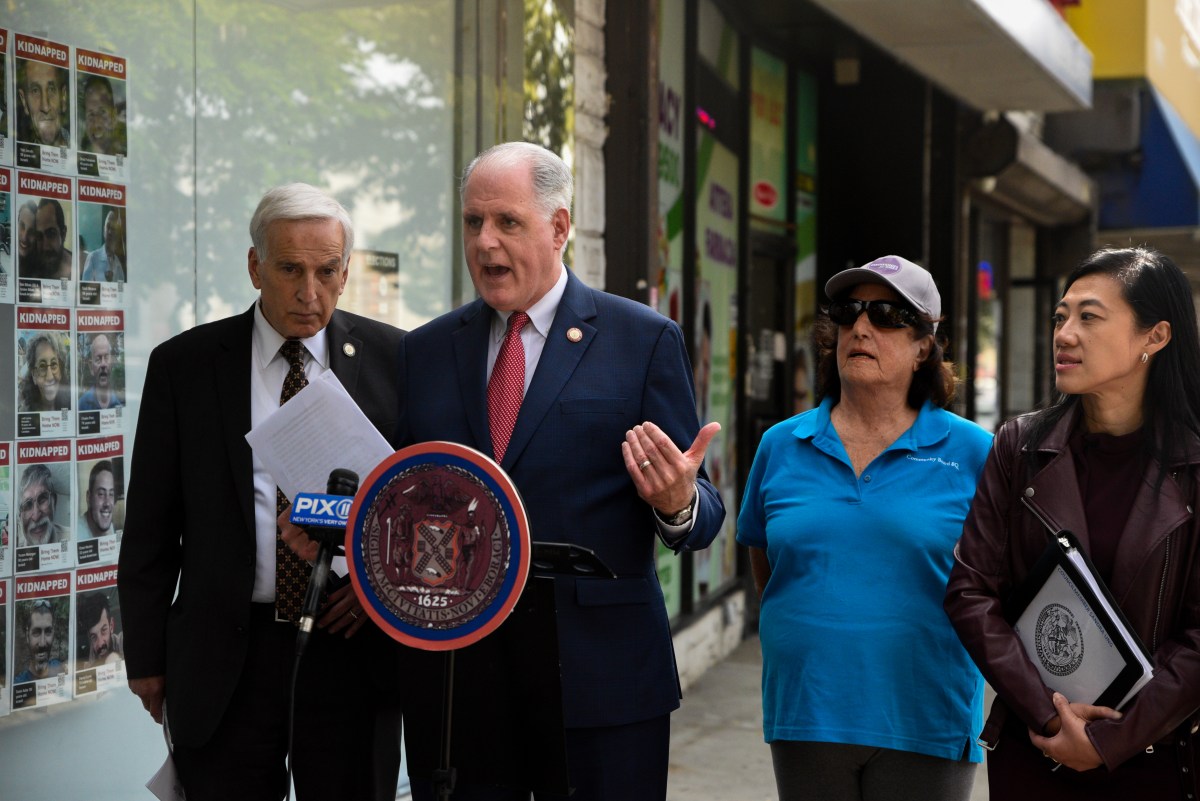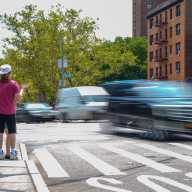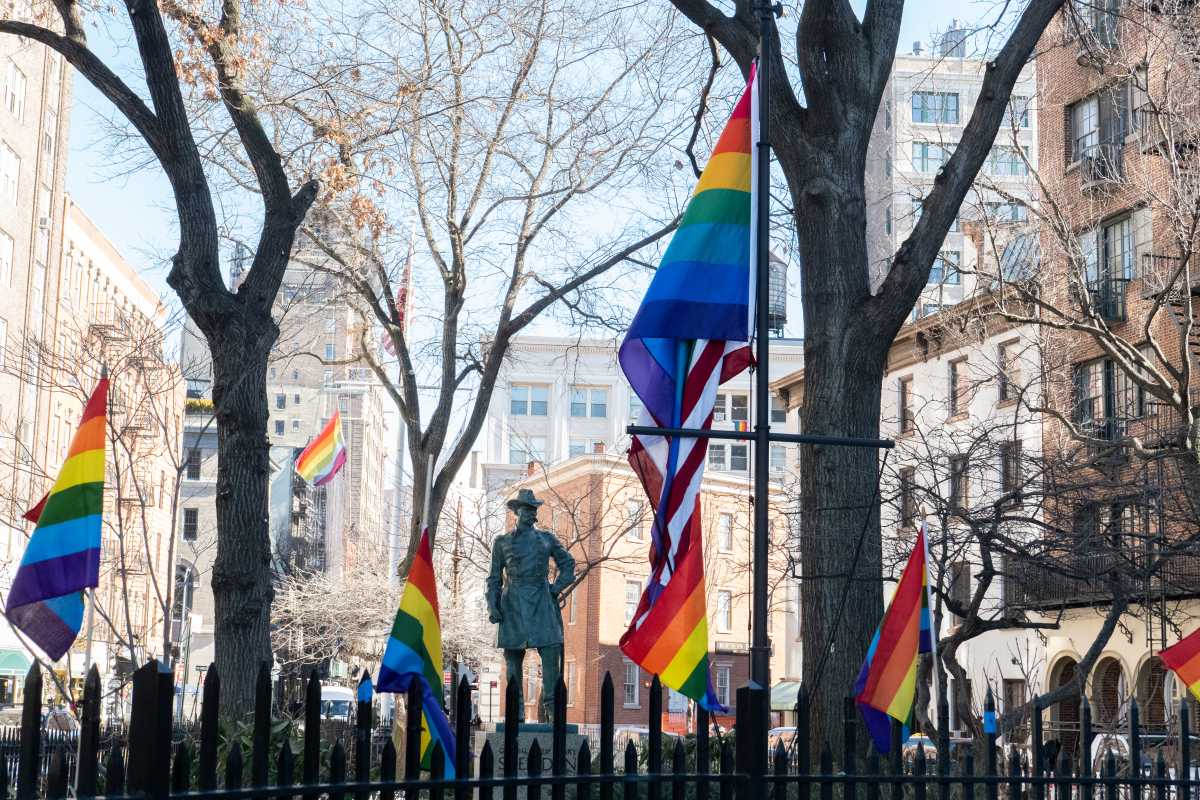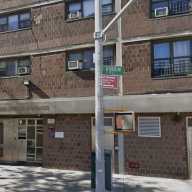NYC plans to deploy a team of peace officers to battle what has become a wild west of reckless mopeds, e-bikes and e-scooters on city streets, the mayor’s office announced on Monday.
The unarmed team of officers will be part of the city’s new Department of Sustainable Delivery (DSD), which was announced on July 7 to conduct enforcement against illegal micro-mobility riding, give delivery app companies more responsibility for rider behavior, and address vehicle parking issues.
Under the approved $116 billion city budget, the mayor said 45 new peace officers will be hired to join the DSD, a unit within the NYC Department of Transportation (DOT). According to city officials, the officers will be trained to issue moving violations and enforce commercial cycling laws against businesses.
“The newly created Department of Sustainable Delivery is yet another step that we’re taking to support delivery workers, keep pedestrians safe, and hold delivery app companies accountable for placing unrealistic expectations on their workers that put New Yorkers in harm’s way,” Adams said.
The first class of officers will not hit the streets until 2028.

It is unclear right now how the DSD will mitigate reckless micromobility driving before the officers are deployed, but the new department comes at the same time Adams has been repeatedly calling on the NYC Council to pass legislation to hold delivery companies accountable.
“Today, I’m also renewing my calls, yet again, to our partners in the city council to pass our long-proposed legislation that will strengthen delivery worker safety and bolster the work of this newly created department,” he said. “It’s time to protect delivery workers and all New Yorkers, once and for all.”
If passed into law, the legislation would establish what officials define as safe delivery times, penalize app companies that break the law and allow the city to revoke delivery apps’ licenses over “continued bad behavior.”
“More police enforcement” of e-bike and moped riding
Freddi Goldstein, a spokesperson at Uber Eats, criticized the mayor’s new department, saying he is using police enforcement against deliveristas, many of whom are from immigrant communities.
“Rather than work with the companies to better support delivery workers, the mayor’s strategy is to lean on more police enforcement of an already vulnerable population,” Goldstein said. “We just worked with the council to pass landmark legislation to get safer bikes into the hands of these workers. It’s collaboration like that that City Hall should seek.”
NYC has seen an “explosion” of food delivery since the pandemic, according to the New York City Bar, a voluntary association of lawyers and law students. There are an estimated 65,000 food delivery workers in the city, many of whom use mopeds and e-bikes to do their jobs. Despite delivery workers being held to a speedy demand — at least by customers — some app companies say there is “no incentive” to deliver unsafely.
“The overwhelming majority of Dashers do the right thing and like all riders must follow the rules of the road. If they don’t, then they face consequences, just like anyone else,” a DoorDash spokesperson told amNewYork. “We have been working together with cities to support their enforcement efforts so that we can help keep everyone safe, whether they’re riding, driving, or simply crossing the street.”
The spokesperson highlighted the need for “better infrastructure,” to keep street users safe, not punishment.
“Just as importantly, efforts to improve street safety must also include investments in better infrastructure and clearer rules for people getting around on two wheels — not just punitive measures — so that these devices can keep providing benefits in our communities,” he said.
But the Worker’s Justice Project, which advocates for immigrant workers’ rights, applauded Adams’ efforts, but is concerned about “the administration’s continued focus” on targeting individual workers.
“App companies like [Uber Eats and DoorDash] have created the conditions for unsafe e-bike use through algorithmic domination of workers, cut-throat competition and precarity, punitive deactivation practices that push workers to take unsafe risks to keep their jobs, and a total lack of investment in worker training, safe vehicles, or charging infrastructure,” the organization said in a statement. “As such, street safety cannot be achieved through surveillance and punishment.”
The statement went on to say that street ssafety requires a a fundamental shift in corporate priorities to align with the city’s collective safety goals and to empower workers to meet those goals without risking their livelihoods.”
Deliveristas “should not have to deliver a piece of cake” five miles away
Meanwhile, some safety advocates said personal accountability by way of visible license plates is needed to hold micro-mobility drivers accountable for breaking road rules.
Janet Schroeder, director of the NYC E-Vehicle Safety Alliance, said Citi Bikes should also be included in stronger enforcement because these riders are “some of the riskiest” on the streets. She is also skeptical about whether or not the DSD can work effectively.
“Delivery apps can not register delivery workers because they ride for multiple apps simultaneously,” she said. “And who is responsible for the rider’s activity when riding to or from work or for personal transportation? Delivery app companies must stop incentivizing speed and riders should have a limited radius. A deliverista shouldn’t have to deliver a piece of cake five miles.”
Like other safety advocates, she said traffic enforcement cameras can capture a license plate and issue tickets for leaving the scene of a crash and for dangerous traffic violations.
“And this is how lives of pedestrians, cyclists and e-bikers lives will be saved and life-changing injuries will be mitigated,” she said.
